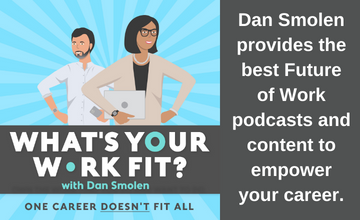Podcast: Play in new window | Download (Duration: 39:51 — 54.8MB)
Dan Smolen discovers from Gitlab’s Darren Murph how remote work can work.
As GitLab’s Director of Remote Work, Darren is “the voice in the room” that evangelizes the trailblazing company’s distributed workforce operating model.
What is more, Darren authored The GitLab Remote Work Playbook, which thousands of people around the globe have downloaded.
As 2021 concludes, positive forces of workplace change mean that people can live and work wherever they please.
And as such, Gitlab supports happier professionals who enjoy doing work that is part of the day and not the day.
A 100 percent distributed workforce is central to GitLab’s success.
In this episode, Darren describes:
- His role at Gitlab. Starts at 4:52
- Why GitLab is a 100 percent distributed workforce. Starts at 6:53
- How he and the company found each other and his role materialized. Starts at 8:32
- Opportunities and challenges inherent in framing a value proposition for recruited talent. Starts at 9:54
- The revolutionary aspects of living and working anywhere. Starts at 16:28
- Reengineering relocation to places where people want to live and work. Starts at 29:10
- The localistic benefits to livable communities unleashed by Gitlab’s operating model. Starts at 32:59
Amazing outcomes happen when you allow talent to determine where they live and work. Of that, Darren adds:
“For hundreds of years, we have fit life around the rigid confines of work. But, when you achieve remote work at scale, you can live your life and then fit work into it.”
During 2021, Gitlab became a publicly traded company, tracked under the ticker symbol GTLB.
About our guest:
Quite possibly, Darren Murph is the world’s first Director of Remote Work. He received a Bachelor of Science in Logistics, Materials, and Supply Chain Management from NC State and an MBA from Campbell University. He lives and works in North Carolina.
EPISODE DATE: December 17, 2021
Social media:
– Living the Remote Dream (Amazon.com book page)
